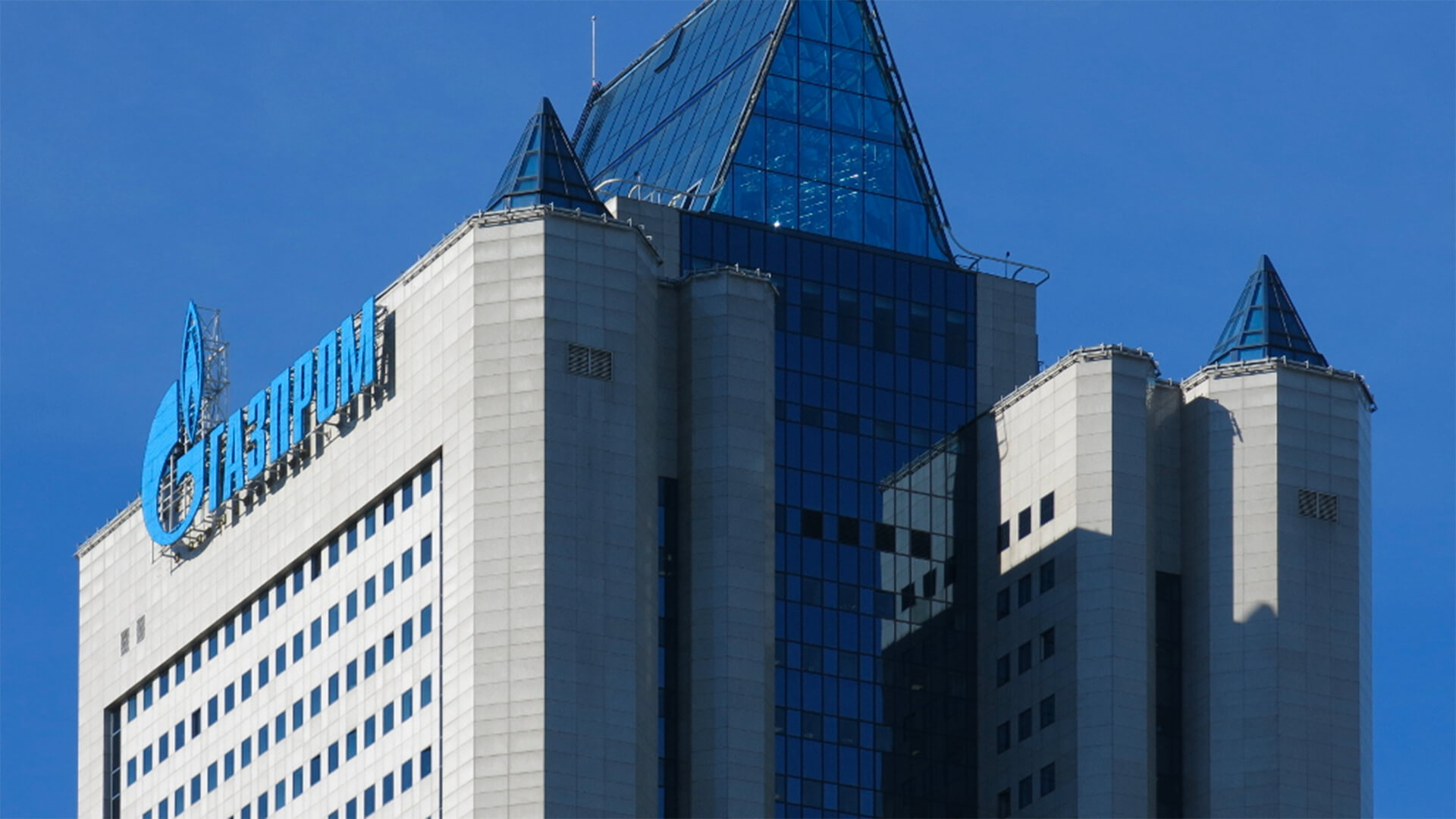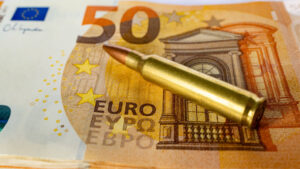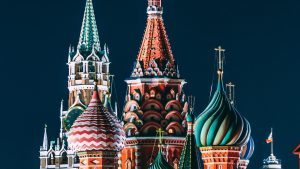Most of Europe has been working to reduce dependency on Russian natural gas, and boy, did they deliver. Russia’s natural gas state monopoly, Gazprom, has just reported its lowest output levels since 1978.
Sanctions targeting piped natural gas have effectively cut off supply to Europe, and the exisiting infrastructure cannot be easily redirected. While Russia has alternative natural gas sources and facilities, the limited workforce and technical challenges make these options difficult to maintain.
European sanctions are working well, and these efforts may permanently sever ties to Russian natural gas with little impact on their own systems. The Russian natural gas industry is facing an unprecedented fall from grace, but not all industries have been impacted equally…
Oil, however, is a completely different beast. We will deal with that tomorrow…
Here at Zeihan On Geopolitics we select a single charity to sponsor. We have two criteria:
First, we look across the world and use our skill sets to identify where the needs are most acute. Second, we look for an institution with preexisting networks for both materials gathering and aid distribution. That way we know every cent of our donation is not simply going directly to where help is needed most, but our donations serve as a force multiplier for a system already in existence. Then we give what we can.
Today, our chosen charity is a group called Medshare, which provides emergency medical services to communities in need, with a very heavy emphasis on locations facing acute crises. Medshare operates right in the thick of it. Until future notice, every cent we earn from every book we sell in every format through every retailer is going to Medshare’s Ukraine fund.
And then there’s you.
Our newsletters and videologues are not only free, they will always be free. We also will never share your contact information with anyone. All we ask is that if you find one of our releases in any way useful, that you make a donation to Medshare. Over one third of Ukraine’s pre-war population has either been forced from their homes, kidnapped and shipped to Russia, or is trying to survive in occupied lands. This is our way to help who we can. Please, join us.
Transcript
Hey everyone. Peter Zeihan here coming to you from Colorado. And the news today is that Gazprom has announced its full year output levels. Gazprom is the Russian natural gas state monopoly, and it is the lowest that it has been since 1978. So. Well, pre-dating the Soviet collapse. And the reason is pretty straightforward. The Europeans have tried to cut their dependency upon Russian natural gas to zero.
And at least in terms of the piped natural gas, they’ve been pretty successful. Now, this is something that is not exactly a shock to people who are familiar with the industry. There are many aspects of the sanctions that are working better than others. This is one of the ones that definitely working better. And the reason is the nature of natural gas itself.
Natural gas is a gas, and it takes a specialized system to produce it, to transport it, and to export it. And if there is a gap anywhere along the system, whether it’s insurance or the pipes or the pumps or the legalities or whatever it happens to be, the whole thing stops and it can’t easily be redirected. And in the case of the Russian stuff that goes to Europe, almost all of it comes from an area called Uruguay, which has been in production now for a half century, goes down a couple thousand miles of pipes through Ukraine and Belarus, into Poland, Germany, Slovakia, Hungary and the rest.
And since this can’t be redirected. When the Europeans stopped taking deliveries, the Russians had to, bit by bit by bit, shut everything down. There are other natural gas options that the Russians have. There’s some that comes from eastern Siberia, well east of the Urals, that goes south into China. There are a couple liquefied natural gas facilities, one on Sakhalin Island, primarily, which goes to Japan and one of the small peninsula, which primarily gets shipped to Europe.
And those are still working mostly. But we should expect even those to go off line in the not too distant future. The problem is, is that those other facilities, the Yol, Yamal, LNG, Sakhalin, LNG, and it’s called Comvita, which is a field in the general vicinity of Irkutsk out near Lake Baikal. Those are all much more technically challenging, and the Russians didn’t do any of the work to bring them online.
That was almost exclusively done by foreigners with British major BP being the single largest player. But the Japanese Mitsui Mitsubishi are involved in Stockland as well as ExxonMobil, and most of those companies are now gone. The Japanese are still involved in Stockland, but ExxonMobil and BP are just cut their losses and left completely. And the Russians do not have the technical skills necessary to maintain those projects in the long term.
As for whether or not the Russians can come back, you know, that’s an open question. The Russians used to be the best in the world when it came to ice production and tundra production. But that was in the Soviet period. And the Soviet industrial educational system collapsed around 1985 and the Russian birthrate collapsed in a similar timeframe. So not only do they have a significantly fewer people who could theoretically be trained up in engineering the system that trained them is born.
So the youngest people who have the full suite of, say, petroleum engineering and reservoir management experience are now in their early sixties, and there just aren’t that many of them left. And for the last 20 years, most of the meaningful maintenance work that has been done in places like here in Hawaii, most of the worked on improving recovery rates has been done by foreigners with BP and ExxonMobil and to a lesser degree, the Germans and the Dutch being the major players.
That’s all gone. So Uruguay being a mature zone could probably be brought back as a significant production zone if you applied shale technologies in mass. But as the Americans have shown, shale works in areas that are relatively close to population centers because it requires a significant amount of labor. And it doesn’t work very well in places that freeze solid because you need a lot of water.
And Uruguay is a thousand miles from anything that matters. So that will probably never come back online because the Russians can’t do it themselves. And the technologies that might allow it to work simply are inappropriate for the geography in the case of exports to Europe. They are now down by 85% compared to the start of the war. What is left is just a trickle that is going to three countries Czech Republic, Slovakia, Hungary, who really don’t have any alternatives to taking natural gas supplies from the Russians, which is one of the reasons why Hungary, Slovakia and to a lesser degree Czech Republic have been the three countries that have been most opposed to the sanctions
regimes in general, and most of the exceptions that have been carved out of the sanctions regime involve those three countries. That’s not going to change this year. That might start to change next year as the Europeans are building up lots and lots of lots of interconnections so that they can cut their links to Russia. Natural gas for good.
And when that happens, all that will be left of the Russian natural gas industry is what’s going through the domestic markets. And perhaps cyclin LNG because the Japanese are involved there. And that’s completely separate political question. But that is crazy because you’re talking about the world’s largest producer and largest exporter of natural gas vanishing from global markets in less than four years.
And that is absolutely unprecedented. Honestly, it’s more than a mild shock that the price shocks that the Europeans have felt at this point have been so mild. They really have been able to bring in liquefied natural gas from other suppliers, most notably a Persian Gulf in the United States. This has put a lot of price pressure on everyone else who used to get natural gas from those locations.
But to this point, I got to hand it to the Europeans. They have put together a sanctions regime that at least in part, is doing exactly what they hoped. Jeremy. Russia now exports, cutting Russian income without unduly shocking their own system. I honestly did not think they could pull this off, but so far so good.








